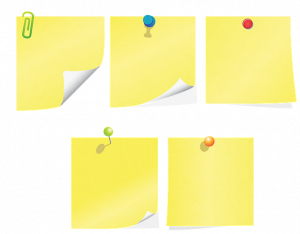Who is a powerful question as it helps you to identify the person responsible the current situation. On the other hand, “why” helps you understand the factors or conditions or events responsible for the current situation whether good or bad.
My experience is that bad leaders tend to ask the question “who” instead of “why” more often, especially during challenges or difficulties. According to Fr. John Mungereza, many Ugandans are fond of the question “who” instead of “why.” They end up fighting each other instead of understanding the underlying factors responsible for the problems they are facing. The question “why” helps you understand what factors helped you perform poorly or succeed.
Leaders who want to affix blame for their current woes will often ask “who”.
For example:
a) A customer writes to the CEO complaining of delayed or poor service delivery
b) A proposal is delivered late to the procuring entity
c) The company’s profits for the year is below budget
d) You get a dizzy; and fall in your office chair unconscious
An average leader will ask “who” is responsible. The following are some of the typical answers they would get:
a) Peter Kintuo; he is the one in charge of that customer.
b) Edward Kalindi, he was in charge of the proposal.
c) The marketing department people
d) That is your village neighbor’s traditional magic or jjuju.
The point is: the question “who” gives answers that are not scientific. The answers are plain and could lead you into firefighting with your friends and team.
If the same leader asks the question “why”, you get more professional answers and keep your friendship. Why could give you the following answers:
a) There were no goods in store, we had to first order, and by the time they arrived there was no delivery truck. Peter Kintuo had to use his personal vehicle to deliver, only for the customer to reject them saying he was late.
b) The bid required a tax clearance certificate which came late from Uganda Revenue Authority. This arose because we delayed buying the bid documents. By the time we got money, we tried to process the required documents, and the tax clearance was outside our control. Edward Kalindi did his best, including being at the tax authorities the whole day yesterday waiting for the tax clearance certificate until he got it, which unfortunately was already late.
c) The marketing budget was cut; making it difficult to undertake aggressive promotion. Marketing staff fuel was halved, and it became too difficult to visit prospects to interest them in our products.
d) You’ve not taken enough water the whole day, yet you’ve been up and down. You need to visit the hospital for a thorough medical checkup to examine what could be the problem.
You can clearly see the question “why” gives elaborative answers. Before taking any decision, it is important to know the why. Unless something bad has really happened like theft, then you can combine why with who.
That is when forensic or fraud investigation comes in handy because the main objective of a forensic investigation is to determine who did what where, when, how and why. Knowing all others without the why is useless.
You just create enemies and have no enough information to ensure the problem does not reoccur.
Do you want to be a great leader? Ask why instead of who.
Who makes people hate you. Why makes you know what to fix to help people excel. That is the secret of successful leaders. They ask why?
Copyright Mustapha B. Mugisa. 2014 All rights reserved.




